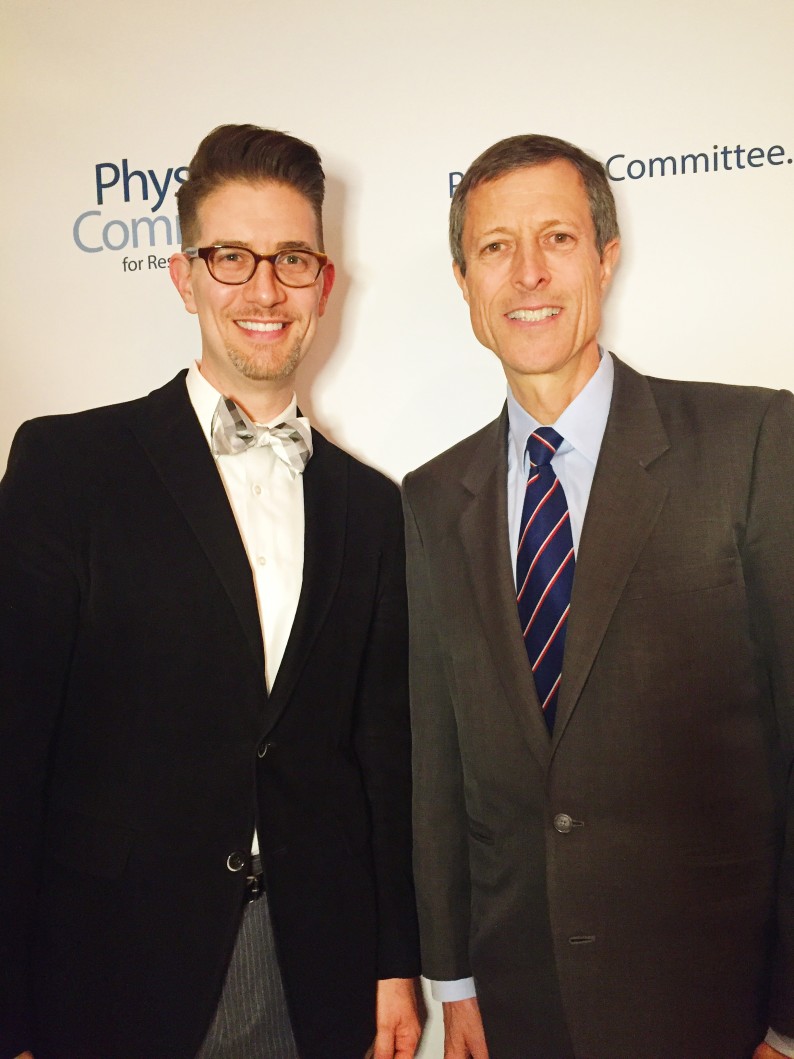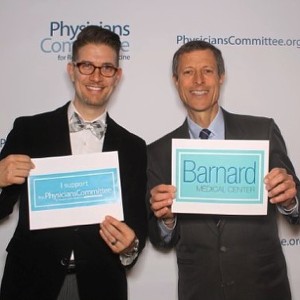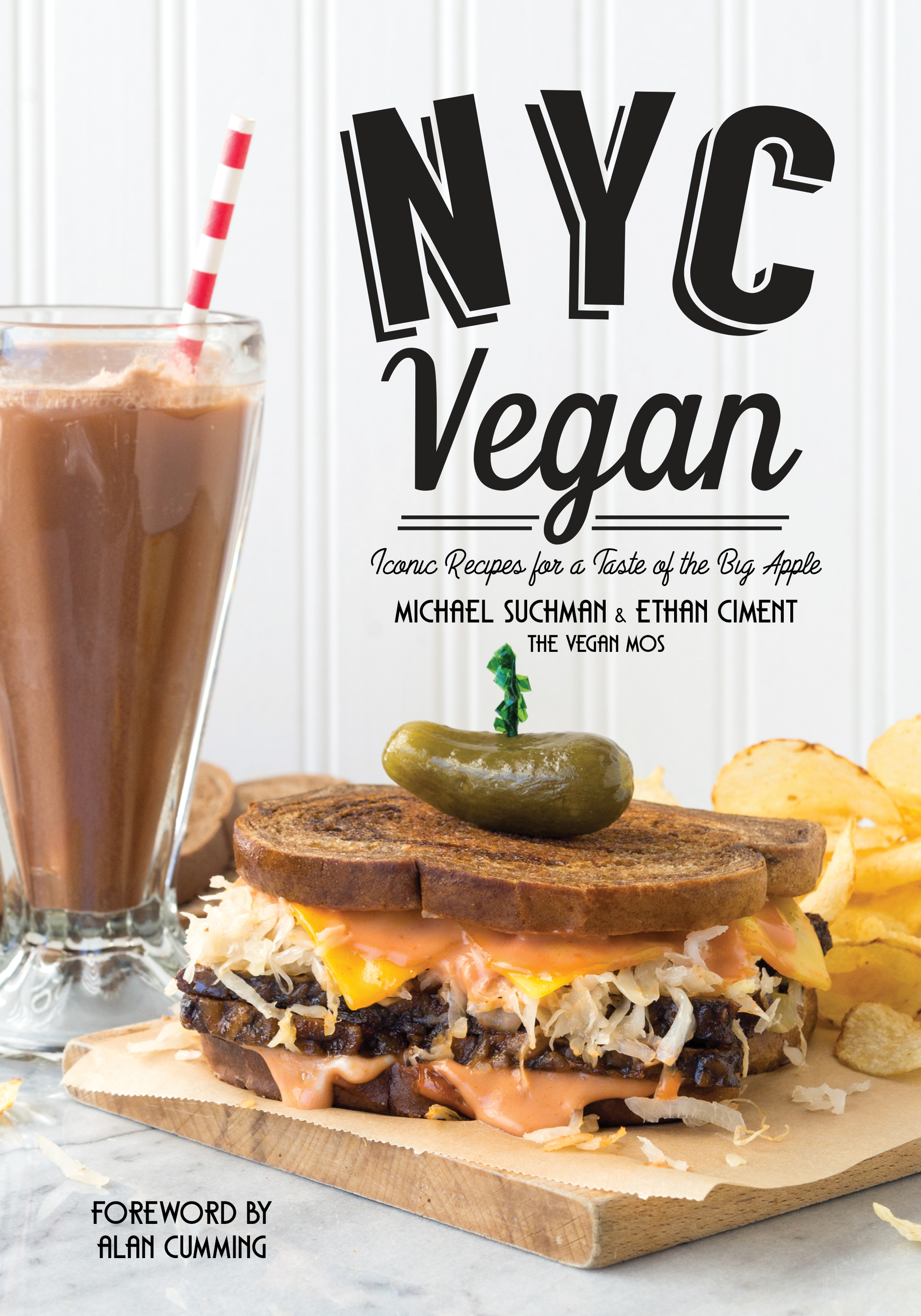I had the opportunity to attend the Physician’s Committee for Responsible Medicine‘s Leadership Summit last weekend in Washington DC. It was a great opportunity to get updated about the many ongoing initiatives they are undertaking at PCRM. I thought it might be nice to share some of the highlights as they are really making huge advances in a number of different areas.
My weekend started off attending the opening celebration for the Barnard Medical Center. The vision of the Physician’s Committee President and Founder, Dr. Neal Barnard, the Barnard Medical Center is a state of the art medical facility in Washington D.C. where patients can come to see one of the many board certified physicians who take an approach to health and wellness that emphasizes prevention and nutrition. They are already changing many lives, helping their patients treat and reverse diabetes, heart disease, high blood pressure, high cholesterol and many other serious illnesses. Attending this event, I was very aware that I was attending an historic event; a first of it’s kind 21st century medical practice where the treatment philosophy is, “plants, not pills.”
As a physician, I’m particularly gratified to know that the Physician’s Committee is working hard on its campaign to make hospitals #FastFoodFree! It always boggles my mind to think that so many patients in most hospitals around this country will wake up from their cardiac bypass only to grab a Big Mac from the onsite food court. This important initiative seeks to force hospitals and patients to recognize the connection between diet and health and align their dietary offerings with the best health interests of the patients.
Another one of their initiatives that’s near and dear to my heart is the Physician’s Committee’s initiative against Hennepin County Medical Center, in Minneapolis, MN. It is one of only a handful of teaching hospitals that still trains their physicians in emergency procedures using live animals rather than the more modern human simulators available that better reproduce the experience of working on a human patient. In each of the procedures performed, the animals are first injured to simulate human trauma and then the student doctors practice their procedures on these helpless live animals. Regardless of how the animals fare in the training, each animal is killed in the end of the experience.
A huge success in the past year was a joint initiative between the Physician’s Committee and a number of other organizations wherein the use of Chimpanzees in all NIH experiments has been ended. This is an enormous achievement and the implications are huge. If the government recognizes the ethical issues involved with experimenting on our closest genetic relatives, then there are significantly stronger arguments against experimenting on animals who are less similar to us. This begins a slippery slope, one which I hope will soon snowball to end the use in all other primates, dogs, pigs, rats and mice. Indeed, 21st century medical technological advances have moved beyond the need for animal experimentation.
Last month, thanks to hard work by the Physician’s Committee, the EPA agreed to replace animal models in pesticide testing. Most significantly, they have also agreed to do away with the LD-50 test (the lethal dose 50) a particularly cruel test wherein animals are subjected to exposure to a toxin and continually re-exposed until they reach the dose at which 50% of the animals in the study have died. Once the study is complete, all of the surviving animals are also killed. This is a huge cause for celebration as it will spare thousands of animals each year from horrific and painful deaths.
This summer, the Physician’s Committee will be hosting a Conference on Nutrition in Medicine in Washington D.C., on July 29th and 30th. There is still time to register for this conference and you can do so here. I attended the Physician’s Committee’s conference last summer on cardiovascular health and it was incredible. Knowing how great that experience was makes me all the more excited to attend this summer.
The Physician’s Committee is doing so much more work than I could ever summarize here. If any of this work moves you as it does me, I hope you’ll consider supporting the Physicians Committee. Truly, their work is life-saving for both humans and animals. Please check out their website and consider becoming a supporter by making a donation.





